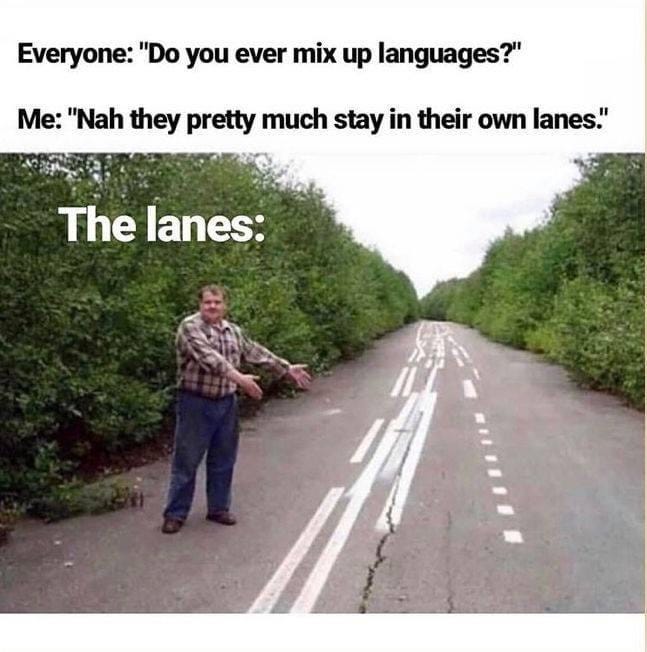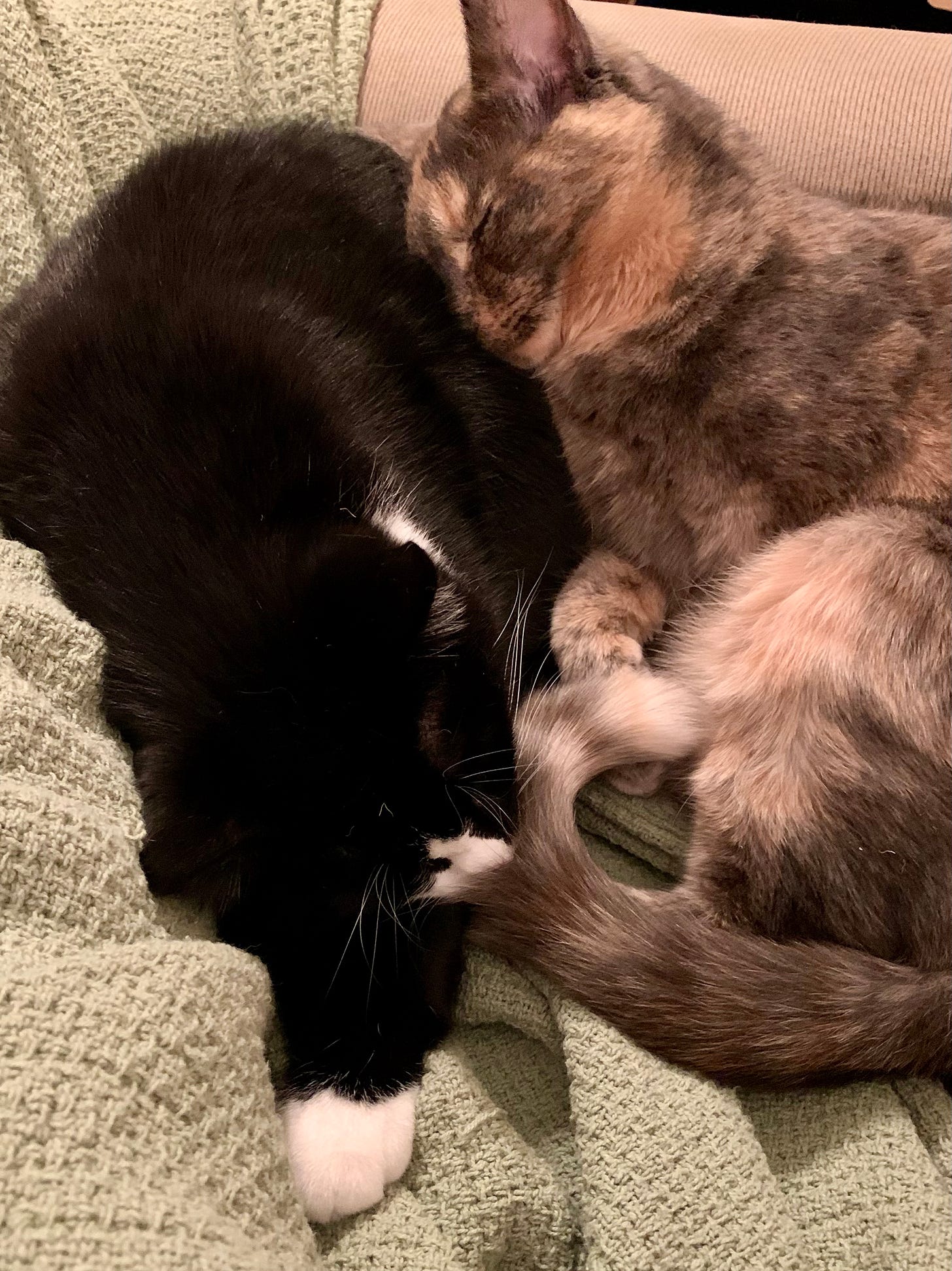As I wrap up my preparations for two upcoming conferences, pulling together examples and excerpts drawn from all my language pairs, I’m reminded of this meme:

To a great extent, the way I perceive my languages’ “lanes” has to do with the order in which I learned them. English is my first language and the only one I spoke as a young child; I started learning French at age 11. In college, I took Russian for a few semesters, and I’m told I spoke it with a very conspicuous French accent—which might explain why, when I started learning Spanish as a grad student, I consciously kept it separate from the French lane. Years later, when I began learning Irish and drawing connections between Irish and Spanish grammar (the copula is like ser and the verb bí is like estar! I can start a sentence with bím ag the same as with suelo!), they got a little tangled. My reading and writing skills in Spanish are unharmed, but I’m a slower conversationalist than I used to be, because sometimes I think I’m about to speak Spanish, but Irish comes out instead.
Sometimes this type of interference, in which languages refuse to stay in their lanes, has less to do with my personal history as a language learner than with social or professional context. Take, for example, the ways I process a common sentence structure in Irish:
If I’m reading for pleasure or having a conversation in Irish, this poses no problem for me; the Irish lane in my brain knows better than to draw quick conclusions about a sentence that starts with tá. My Irish-speaking self is, by necessity, patient.
But what if I’m reading in one language for the specific purpose of translating into another? In that situation, for better or worse, the target language’s lane is determined to take over. And when I’m in the English lane, this sentence structure can feel like a roadblock: the t in ort corresponds to the you at the beginning of my translation. Critical information is being withheld until the last phoneme of the Irish sentence!
Fortunately, my Irish-speaking self takes a break now and then from tussling with Spanish to teach my English-speaking self the value of patience. And even though French likes to hang out in its own lane, I believe it’s drawing some benefit from this interaction as well. The practice of translating from Irish is causing me to slow down and process what I read more holistically when I’m translating from French and Spanish as well.
Self-Promotion Corner
Two new publications in online journals in the last month: I’m delighted to share my flash fiction piece “The Reefer,” which appears in the latest issue of LEON Literary Review, and my translation of “All the Best Guys Are Named Jean-Edmond,” a short story by Monique Debruxelles, in The Nelligan Review.
If you’ll be at the American Translators Association conference this week, be sure to say hello! I hope you’ll attend my session Saturday afternoon on resources and strategies for translators of historical texts. The Literary Division has lots of great events planned as well, including Thursday evening’s After Hours Café, a table at the Book Fair on Friday afternoon, two sessions presented by Distinguished Speaker Will Evans, and a multilingual workshop opportunity on Saturday morning.
I’m also excited to be attending the American Literary Translators Association conference next month—my first in-person ALTA event! I’m delighted to be co-organizing a roundtable on language pairs that, like Irish<>English, feature significant differences in grammatical structure. You can also hear me read from Songs for the Gusle as part of the bilingual reading series, and if you come to Declamación, I’ll sing you a sad Irish song!
A Humble Suggestion
In each newsletter, I’ll offer at least one recommendation for your reading, watching, or listening pleasure. This time, I’d like to draw your attention to two publications here on Substack that I enjoy and that tackle themes similar to mine: Letters from Everywhere, in which author Kalpana Mohan shares her thoughts on the books she reads in translation, and A Polite Lie, Shelly Bryant’s newsletter on literary translation and poetry.
Here, Look at My Cats
The world is a mess, and you might welcome a pleasant distraction. For what it’s worth, here are my cats.
See you at ATA, at ALTA, and/or back here soon!
Laura






